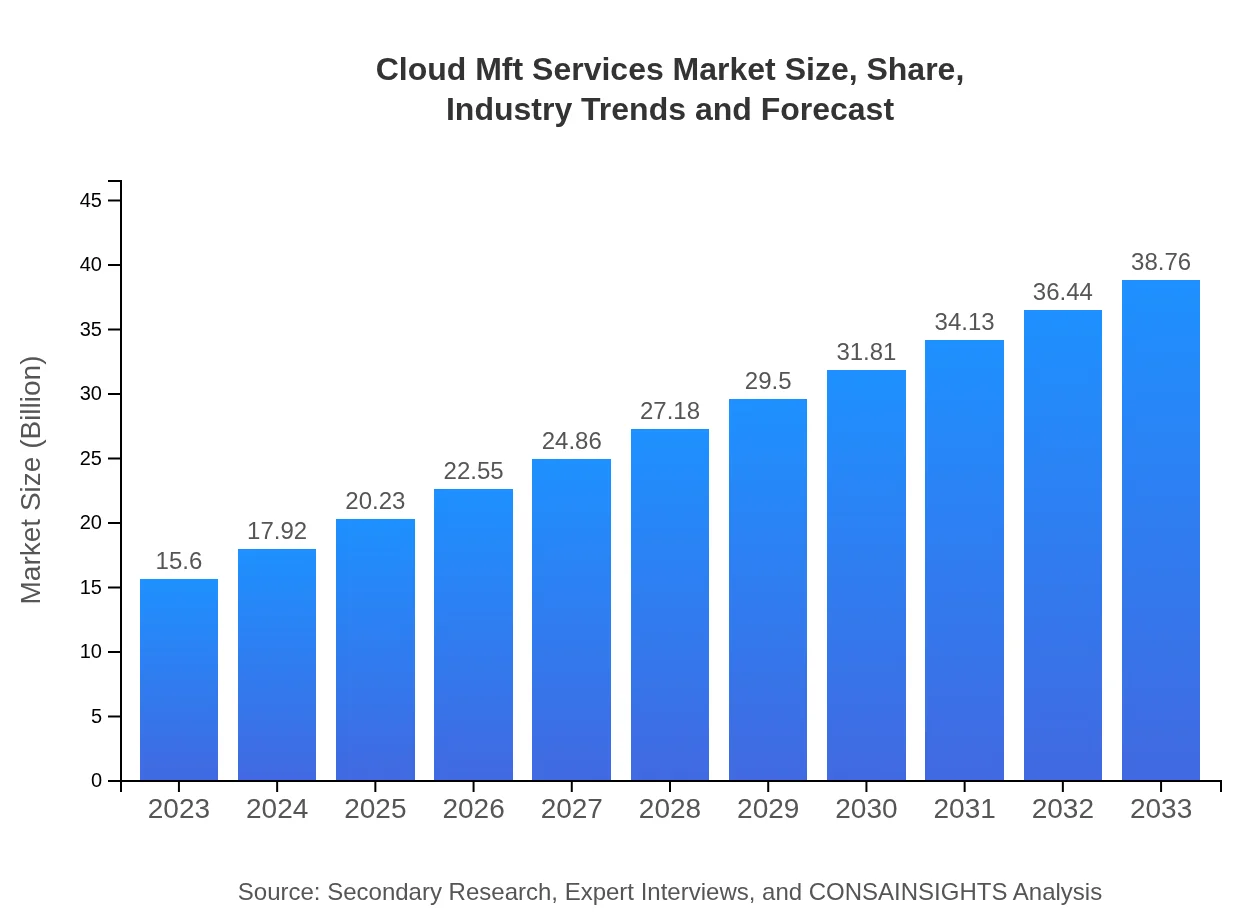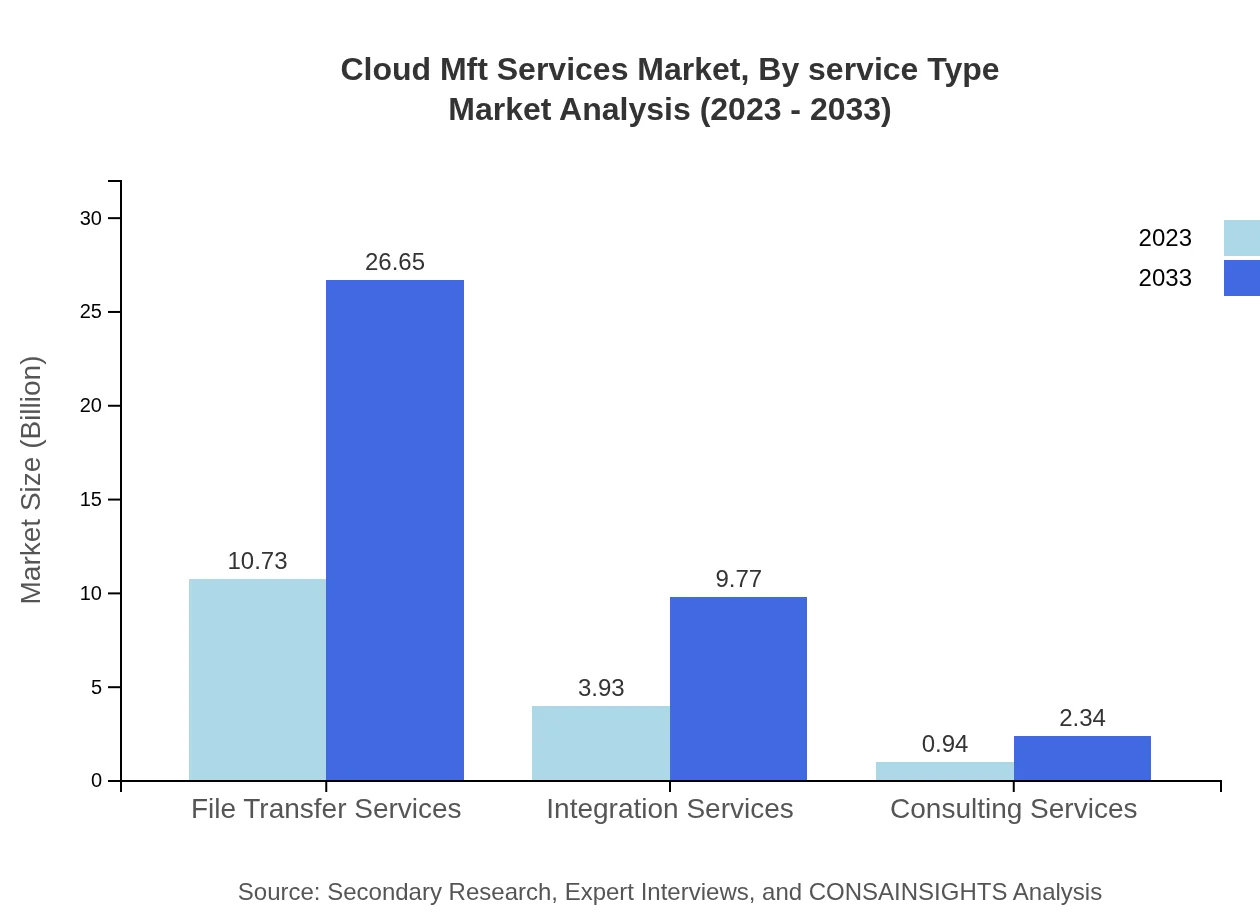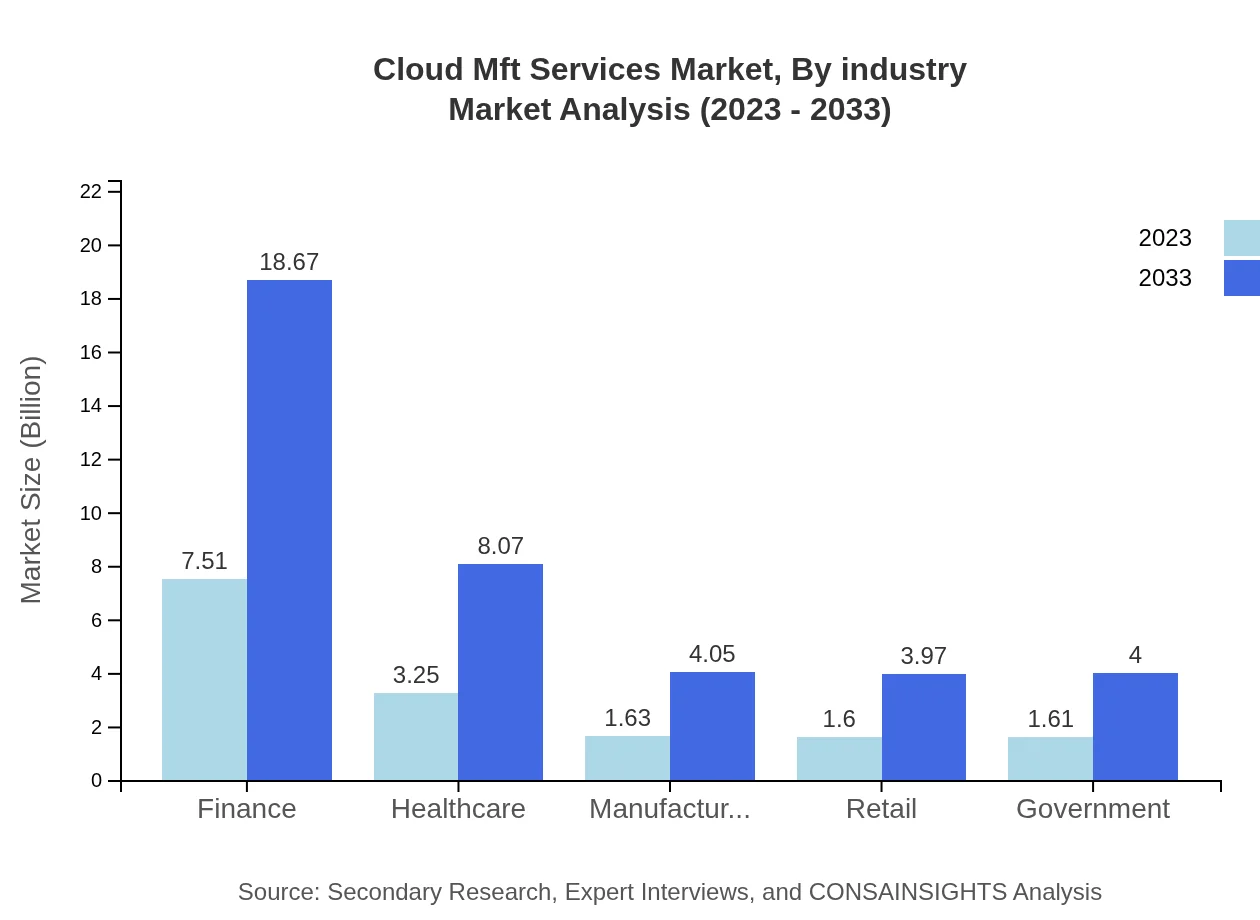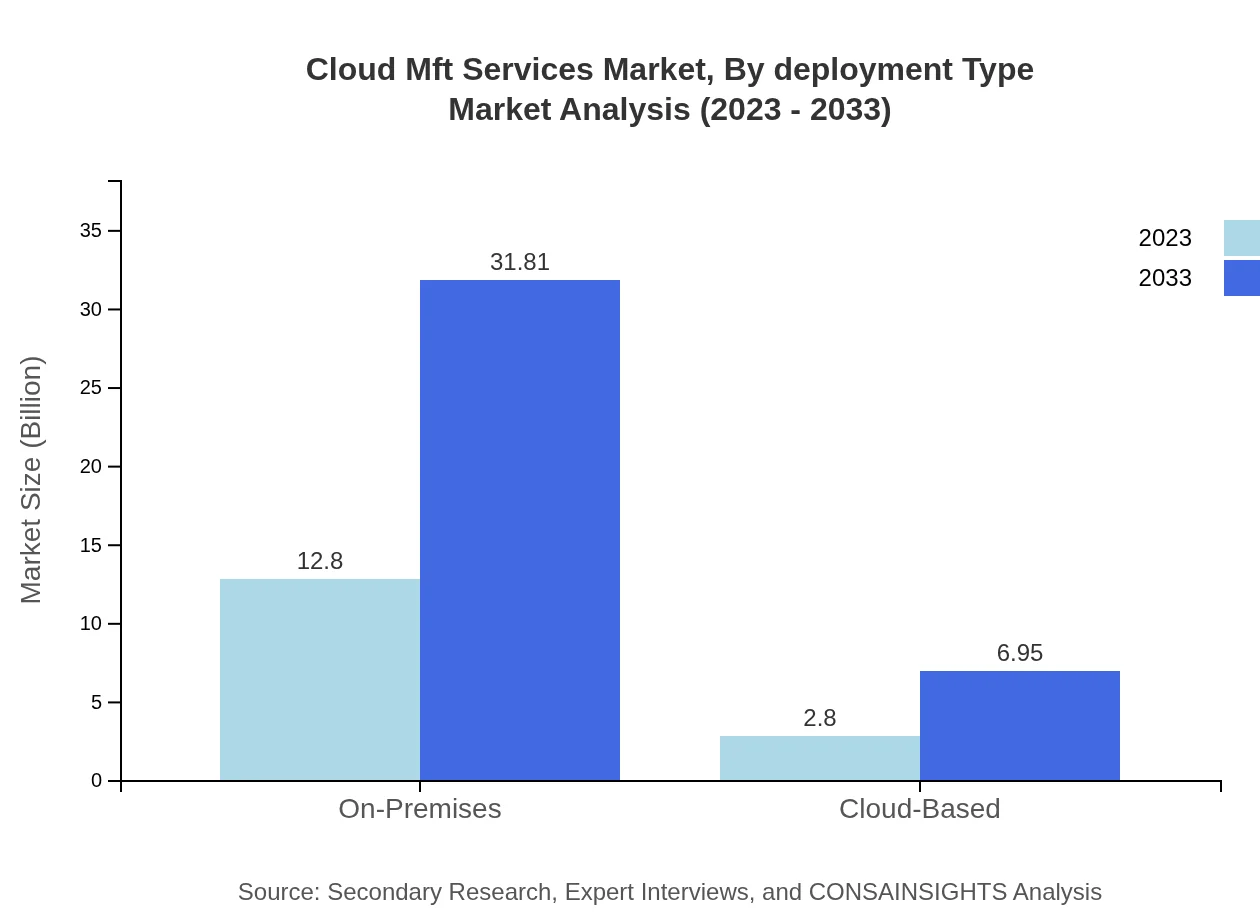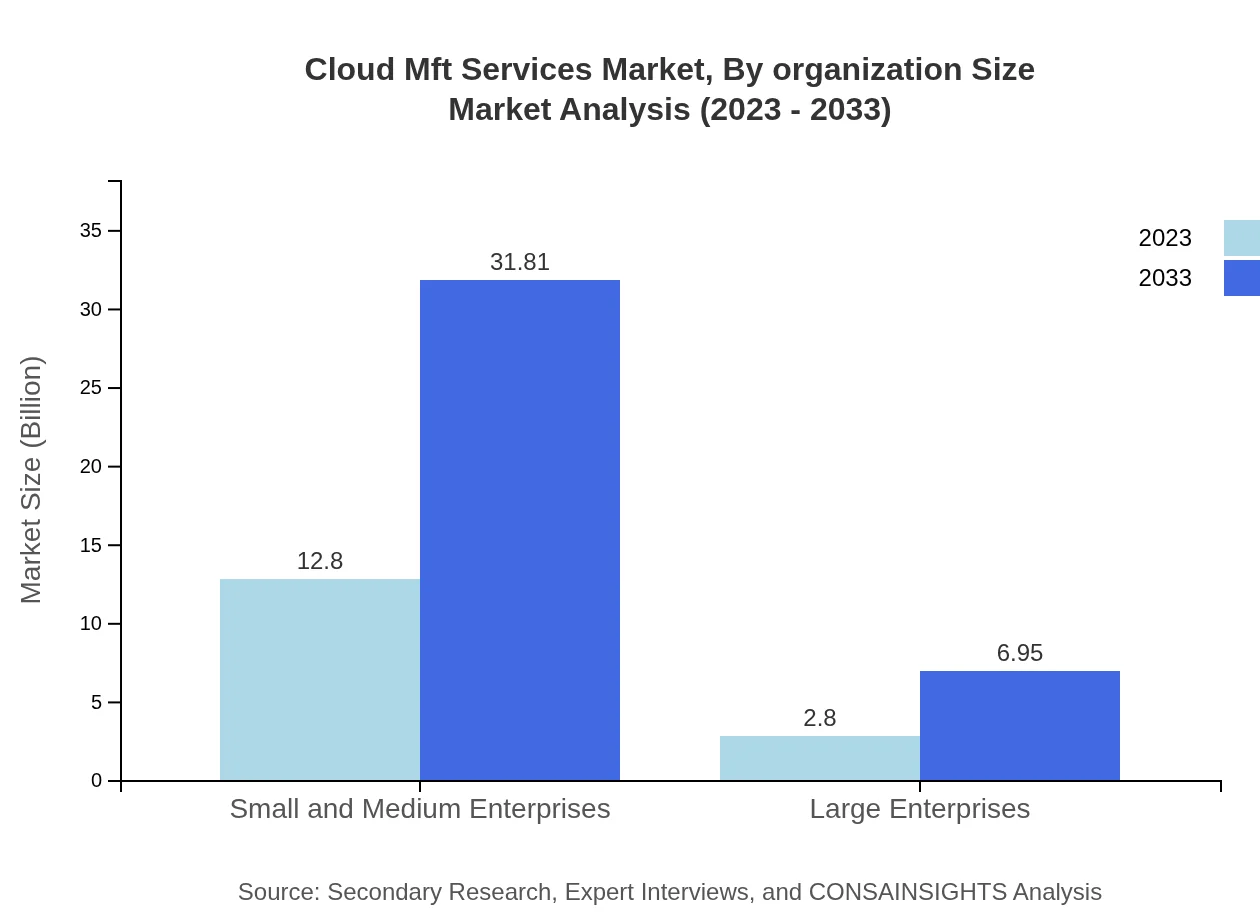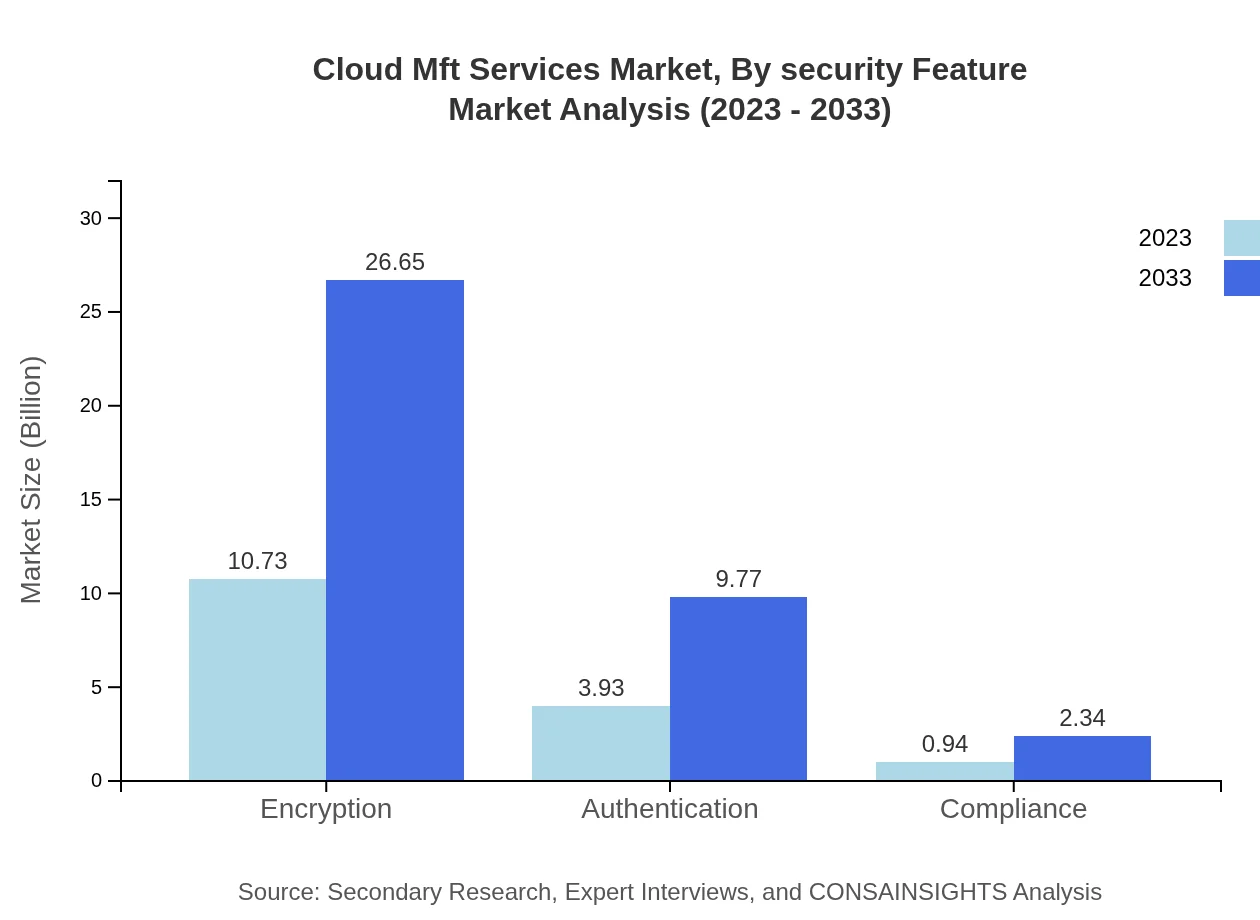Cloud Mft Services Market Report
Published Date: 31 January 2026 | Report Code: cloud-mft-services
Cloud Mft Services Market Size, Share, Industry Trends and Forecast to 2033
This report delves into the Cloud Managed File Transfer (MFT) Services market, providing insights and forecasts from 2023 to 2033. It covers market size, growth trends, regional analysis, and key players, offering a comprehensive overview of this dynamic sector.
| Metric | Value |
|---|---|
| Study Period | 2023 - 2033 |
| 2023 Market Size | $15.60 Billion |
| CAGR (2023-2033) | 9.2% |
| 2033 Market Size | $38.76 Billion |
| Top Companies | IBM, Axway, GlobalSCAPE, Cleo, SFTPPlus |
| Last Modified Date | 31 January 2026 |
Cloud Mft Services Market Overview
Customize Cloud Mft Services Market Report market research report
- ✔ Get in-depth analysis of Cloud Mft Services market size, growth, and forecasts.
- ✔ Understand Cloud Mft Services's regional dynamics and industry-specific trends.
- ✔ Identify potential applications, end-user demand, and growth segments in Cloud Mft Services
What is the Market Size & CAGR of Cloud Mft Services market in 2023?
Cloud Mft Services Industry Analysis
Cloud Mft Services Market Segmentation and Scope
Tell us your focus area and get a customized research report.
Cloud Mft Services Market Analysis Report by Region
Europe Cloud Mft Services Market Report:
In Europe, the market for Cloud MFT Services is projected to expand from $4.11 billion in 2023 to $10.22 billion by 2033. The focus on compliance with stringent data protection regulations like GDPR is a key driver of this growth.Asia Pacific Cloud Mft Services Market Report:
In the Asia Pacific region, the Cloud MFT Services market stood at $3.05 billion in 2023 and is projected to grow to $7.58 billion by 2033. This growth is attributed to the rapid digitization initiatives and increasing cloud adoption among businesses, particularly in developing economies such as India and China.North America Cloud Mft Services Market Report:
North America accounted for a significant market share, valued at $5.98 billion in 2023, anticipated to reach $14.86 billion by 2033. The region's advanced technological landscape and stringent regulatory frameworks spur the adoption of robust MFT solutions.South America Cloud Mft Services Market Report:
The South American market for Cloud MFT Services was valued at $0.31 billion in 2023, with expected growth to $0.77 billion by 2033. Growing investments in IT infrastructure and a rising awareness of the importance of secure file transfers are driving this increase.Middle East & Africa Cloud Mft Services Market Report:
The Middle East and Africa region saw a market size of $2.15 billion in 2023, expected to reach $5.33 billion by 2033. Increased data privacy regulations and a growing emphasis on digital transformation in enterprises bolster market expansion.Tell us your focus area and get a customized research report.
Cloud Mft Services Market Analysis By Service Type
The Cloud MFT Services market by service type is primarily categorized into File Transfer Services (size: $10.73 billion in 2023), Integration Services (size: $3.93 billion in 2023), and Consulting Services (size: $0.94 billion in 2023). File Transfer Services dominate the market, holding an extensive share of 68.76%, with significant growth anticipated over the forecast period.
Cloud Mft Services Market Analysis By Industry
In the Cloud MFT Services market by industry, the Finance sector represents substantial market size ($7.51 billion in 2023, 48.16% share) and is closely followed by Healthcare ($3.25 billion, 20.82% share), and Manufacturing ($1.63 billion, 10.46% share). The increasing demand for secure data exchange in sensitive sectors drives these trends.
Cloud Mft Services Market Analysis By Deployment Type
The deployment type segmentation reveals a significant share for On-Premises solutions ($12.80 billion in 2023, 82.06% share) compared to Cloud-Based solutions ($2.80 billion, 17.94% share). Organizations prioritize On-Premises deployments for security, while Cloud-Based options are gaining traction for their flexibility.
Cloud Mft Services Market Analysis By Organization Size
The market by organization size highlights a considerable segment for Small and Medium Enterprises ($12.80 billion in 2023, 82.06% share), emphasizing a strong adoption trend in SMEs. Large Enterprises ($2.80 billion, 17.94% share) also seek robust MFT solutions to enhance their operational efficiency.
Cloud Mft Services Market Analysis By Security Feature
Security features are pivotal in the Cloud MFT Services market, with Encryption ($10.73 billion in 2023, 68.76% share) and Authentication ($3.93 billion, 25.2% share) holding the majority market share. Investments in compliance features ($0.94 billion, 6.04% share) are also on the rise as businesses focus on data protection.
Cloud Mft Services Market Trends and Future Forecast
Tell us your focus area and get a customized research report.
Global Market Leaders and Top Companies in Cloud Mft Services Industry
IBM:
IBM provides robust Cloud MFT solutions, emphasizing security, compliance, and integration capabilities, serving various industries worldwide.Axway:
Axway specializes in cloud integration and MFT solutions, offering innovative services that enhance data exchange and business processes.GlobalSCAPE:
GlobalSCAPE offers secure MFT solutions renowned for their ease of use and focus on compliance measures for enterprises.Cleo:
Cleo helps organizations with integrating and managing data flow across various networks with its MFT solutions.SFTPPlus:
SFTPPlus excels in providing secure file transfer and sharing services tailored for businesses with high compliance demands.We're grateful to work with incredible clients.









FAQs
What is the market size of cloud Mft Services?
The cloud MFT services market is valued at approximately $15.6 billion in 2023, expected to grow at a CAGR of 9.2%, indicating robust expansion potential as organizations increasingly rely on cloud technologies for secure data transfers.
What are the key market players or companies in the cloud Mft Services industry?
Key players in the cloud MFT services market include major technology firms like IBM, MuleSoft, Axway, and FileZilla, each providing specialized solutions designed to meet varied organizational needs for secure file transfers.
What are the primary factors driving the growth in the cloud Mft Services industry?
The growth of cloud MFT services is driven by the increasing need for data security, regulatory compliance pressure, and the surge in digital transformation initiatives across sectors, enhancing demand for secure file transfer solutions.
Which region is the fastest Growing in the cloud Mft Services?
The North American region is the fastest-growing in the cloud MFT services market, projected to reach $14.86 billion by 2033, driven by technological advancements and increasing cybersecurity demands.
Does ConsaInsights provide customized market report data for the cloud Mft Services industry?
Yes, ConsaInsights offers tailored market reports for the cloud MFT services industry, allowing clients to obtain insights specific to their operational requirements and strategic goals.
What deliverables can I expect from this cloud Mft Services market research project?
Deliverables from the cloud MFT services market research project typically include detailed reports, market forecasts, competitive analysis, and insights into industry trends and key drivers affecting market dynamics.
What are the market trends of cloud Mft Services?
Current trends in the cloud MFT services market include the shift towards integrated cloud solutions, increased emphasis on data encryption for security, and a growing demand for compliance with data regulations.

